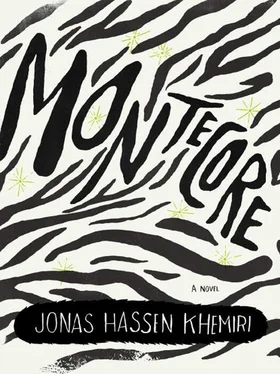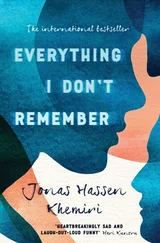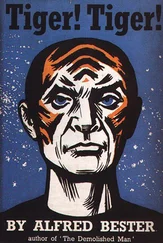In order to feed the reader’s successive will to read I propose the following: Let us cyclically transform our book into new literary molds! Let us now initialize the secondary section of the book, where we will first serve the reader your father’s authentic letter texts and thereafter invite you to present your first memories of your father. How is this idea appraised? I am snugly securitized about its ingenuity. Let your father be the pilot of the section; I will reduce myself to footnote level. (And you will be … the map holder? The stewardess? HA HA! I am just tickling.)
Affixed you will find your father’s corresponded letters translated into melodious Swedish. I have maximally forced myself and my hope is your appreciating appraisal.
Your ceaseless friend,
Kadir
Stockholm, February 2, 1978
Greetings, Kadir!
Many salutations are presented you in capitals from the wintry European corner that we can call Sweden. I am sitting in Pernilla’s minimal kitchen and formulating you these phrases. The frost is whistling the exterior of the house but today the cold is still somewhat humanized. Compared with before. Even by a Swedish standard this year’s winter has been brutal; the cold record has been demolished, and one night the temperature crashed to thirty below. But with triple clothing layers and a newly invested tricolored scarf I have passed the winter’s cold before the radioactively strong fire that we poets call love.
Let me first describe my arrival: The journey passed pain-free. Pernilla’s letter invited me to cross the border to my new homeland. Pernilla’s lodging is localized in a very modern neighborhood in Stockholm’s vicinity. Her house is one in a row of eight identical boxes. They are all well formed, with modern angular lines, brown color, mirror-clad elevators, and floor buttons that glow when you push them.
The bolt of nervousness filled me when I elevated my body toward her seventh floor. I alarmed her bell and waited in silence. Nothing happened. I alarmed her bell again. Nothing happened. I alarmed her bell again and again and again and again. Then I heard pattering whispers from her neighbors. I alternated my strategy. On a scrap of paper I noted the following phrase:
“Je t’attends à Centralen …/Ton Chat Unique” 1
I dropped the paper in the mailbox and then I returned my body to Central Station. Sitting in a multitude of hours at a café, drinking coffee with added cognac, I was piled with the questions of doubt. Perhaps I should have forewarned Pernilla of my arrival? Perhaps the ingenious idea of offering her the surprise of my presence was not an ingenious idea? Perhaps she is on vacation? Perhaps she is full of wrath about my method of silencing my correspondence? All these questions grew me in tempo with the time of hours. Lunch became afternoon became evening. The disappointment about my fiasco, the inconvenienced hmmings of the waitresses, the mountain of splintered toothpicks and consumed sugar packets. She must have forgotten me, everything is lost, what have I done? The level of the alcohol added my tragedy and my remorse grew.
Then … in the midst of the twilight of disappointment I heard a call from the entry of the café: “ABBAs!”
And there she stands in the mistiness of the backlight. Pernilla. Her long body with the firish gaze and the goddessish nose. And then she sprouts the smile. The smile that avalanches forth through the dark-as-night twilight room and shines the café’s colors to new levels and is reflected in the pastry glass and dazzles punks and interrailers and tired conductors …
She studies my gaze and she shakes her head and we meet our smiles. She reaches my table, she notes my alcoholic odor, she studies my shabby status, and expresses in a whisper:
“Couldn’t you have called first?”
And I find no response. No words are nearby to me. All that exists is she. She! I sobered myself quickly, transported the bottle to my inside pocket, and followed her to the metro.
Since this day we have lived in fantastic symbiosis in her little two-piecer where Bob Marley sits as a poster on the wall and odor of the incense is to me homey. Pernilla flies domestically so it is seldom that I am forced to pass longer times in isolation. When she is working I associate with my notebook where I collectionize observations and poetic phrases. Like for example this: “Sweden … oh, Sweden. A land of quiet metro cars, delicious women, and possibilities of the plurality. Sweden is airy cleanness, watery celestiality, and breathtaking views from centrally located bridges. Everything in Sweden is odorless and colorless, properly squared, white and pink and soft in resemblance to the forearm skin that is Pernilla’s. Oh, Pernilla’s skin. Only one of numberous motives for why I chose to leave my best friend and newly started photographer career.”
The celebrating of Christmas was lived through by me without great difficulty. Before the festival Pernilla said:
“Just so you know — Swedes’ Christmas traditions are a very internal affair and it takes many years before one reaches the status of being invited as an external guest.”
Consequently I passed my Christmas holidays waiting solitarily in Pernilla’s apartment. The silence of the neighborhood was tombish. Nowhere was there the tiniest indication that this was a festival of rejoicing. I portioned my company with the television, I forced myself to understand sporadic Swedish words and mixed my julmust with alcoholic reinforcement. I played my newly invested Stevie Wonder record. I smoked frequent cigarettes on the snow-filled balcony. The time without Pernilla was experienced by me as bizarrely protracted. I do not understand what she has done with me. Is it really this that is called love, Kadir? To experience oneself in solitary status as so split that each breath becomes an effort?
Pernilla returned from her parents two days after the eve of Christmas and I noted the modified shine of her eyes.
“What has taken place?” I interpellated.
“Nothing.”
“Come on, tell me.”
“No … I do not want to summarize it.”
“My dear Pernilla, let us not carry secrets between us. Now portion me your emotion.”
Pernilla sighed her lungs and vibrated her lower lip.
“It is just that … Do you know how it feels to be crestfallen by the prejudices of the people you are closest to?”
“Well, that emotion is actually not particularly known to me.”
“Then you do not know how I feel. My mother is scared to the death over our initiated relationship. Ever since I told her about you she has warned me cyclically about the aggressive temperaments of Muslims. She has presented me numberous articles about Muslim terror; she persists in calling you ‘the gold digger.’ ”
“Hmm …”
“And now she refused to invite you to our Christmas celebration.”
“But … you said that the celebrating of Christmas was familially internal …”
“I lied. My older brother’s goddamn tennis partner and his girlfriend from the U.S. were invited. The whole neighborhood gathered on Christmas Day. Neighbors, cousins, the cousins’ kids’ goddamn dogs. But not you, who share both my love and my lodging. Sometimes I really hate them. HATE.”
Here her tears burst and I held her shaking shoulders and hugged her warmth. I thought: “Even her crying presents its own character. Pernilla’s crying is so far from the generality of other women. Never can it be referred to resignation or weakness. Instead it is vibrations with volcanic internal hate. She dries all the tears with her hand as quick as the windshield wipers of a car. Every tear that she does not succeed in holding in seems to corrode her pride. We comforted each other’s sorrows all night and at the moment of slumber my lips whispered:
Читать дальше










